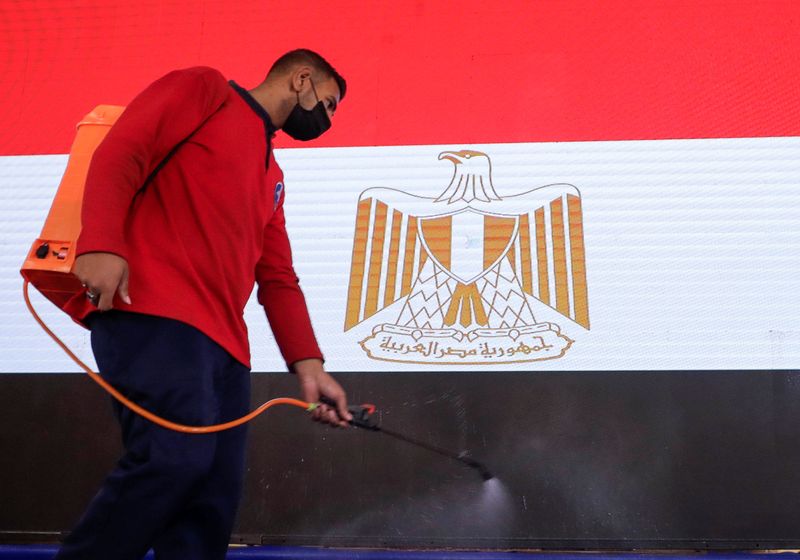CAIRO (Reuters) - Non-oil private sector activity in Egypt contracted for an 18th month in May as the Ukraine crisis, import restrictions and a devalued currency put pressure on prices, a survey showed on Sunday.
The S&P Global (NYSE:SPGI) Egypt Purchasing Managers' Index strengthened to 47.0 from April's 46.9, but still remained below the 50.0 threshold that separates growth from contraction.
"Rising price pressures continued to weigh on client spending," S&P Global said. "Input cost inflation quickened to the highest in six months amid rising global commodity prices, a stronger US dollar and the banning of a number of imported goods."
"Subsequently, businesses reduced their input purchases and staffing levels, while the outlook for future activity weakened to its second-lowest in the series history," it added.
The import ban on certain products caused supply shortages for several firms and a new requirement for letters of credit for importing many goods resulted in increased customs delays, S&P Global said.
Headline inflation rose to 13.1% in April from 10.5% in March.
The sub-index for overall input prices jumped to 62.1 from 58.3 in April and that for purchase costs rose to 62.3 from 58.8.
"Non-oil business conditions in Egypt remained pinned down by rapid inflationary pressures in May, as survey panellists indicated that rising market prices led to a sharp drop-off in demand and a further increase in business expenses," said S&P Global economist David Owen.

Output and new orders in May extended a months-long contraction, with the output index, at 45.0, worsening from April's 45.3 and the index for new orders dropping to 44.6 from 45.3.
The sub-index for future output expectations declined to 55.2, its second lowest reading since the survey first included the category 10 years ago. The index was at 57.7 in April.